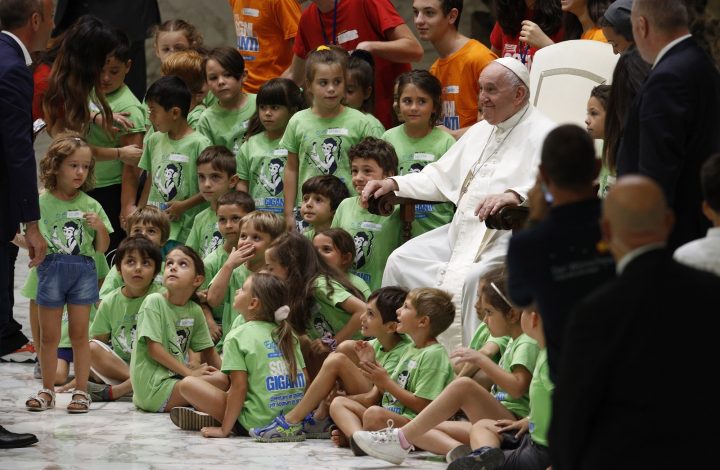
(OSV News) — In the 25 years since the U.S. International Religious Freedom Act became law, “restrictions on religious freedom have been steadily increasing for several years” around the globe, said the chairmen of the U.S. bishops’ religious liberty and international policy committees.
“Sadly,” 80% of the world’s inhabitants “live in countries where there are high levels of governmental or societal restrictions on religion,” said Cardinal Timothy M. Dolan of New York, chairman of the U.S. Conference of Catholic Bishops’ Committee for Religious Liberty, and Bishop David J. Malloy of Rockford, Illinois, chairman of the USCCB’s Committee on International Justice and Peace.
The prelates made the comments in a joint statement issued to commemorate the 25th anniversary of the law that promotes freedom of religion and conscience throughout the world as “a fundamental human right.”
President Bill Clinton signed the International Religious Freedom Act into law Oct. 27, 1998, to elevate religious freedom as a U.S. foreign policy goal, promote religious freedom in countries that violate this basic human right, and strengthen advocacy on behalf of individuals persecuted in other countries on the basis of religion.
The law established the Office of International Religious Freedom and the position of ambassador-at-large for international religious freedom within the U.S. Department of State. The ambassador-at-large, who is currently Rashad Hussain, serves as principal adviser to the secretary of state and the president on religious freedom conditions and policy.
The law also created the U.S. Commission on International Religious Freedom, known as USCIRF, an independent, bipartisan body that monitors the universal right to freedom of religion or belief abroad.
“The Catholic Church has long recognized the essential and inviolable nature of religious freedom,” Cardinal Dolan and Bishop Malloy said in their Oct. 25 statement.
In 1965, St. Paul VI promulgated the Second Vatican Council’s Declaration on Religious Freedom (“Dignitatis Humanae”), which stated that this right is founded “‘in the very dignity of the human person,’ so that everyone has a right to religious freedom,” the bishops noted. “The declaration went on to say governments must protect the rights and safeguard the religious freedom of all its citizens so that ‘no one is to be forced to act in a manner contrary to his own beliefs, whether privately or publicly, within due limits.’”
“Let us join with our Holy Father in his prayer ‘that freedom of conscience and freedom of religion will everywhere be recognized and respected; these are fundamental rights, because they make us free to contemplate the heaven for which we were created,’” Cardinal Dolan and Bishop Malloy said.
In his own statement marking the anniversary of the law, Secretary of State Antony Blinken said, “We reaffirm the United States’ strong and enduring commitment to advancing religious freedom for everyone, everywhere. This instrumental legislation provided a range of new tools to give voice to the persecuted, to empower advocates, and to promote religious freedom around the world.”
“Freedom of religion or belief is a bedrock American value,” he said in his Oct. 27 statement, recalling Clinton’s words when he signed the bill into law: “When we promote religious freedom, we also promote freedom of expression, conscience, and association, and other human rights.”
“The right to freedom of religion or belief, including the freedom to think and worship in our own way, to follow our consciences, and to change our beliefs is inextricably linked to so many rights we hold dear,” Blinken stated.
Both USCIRF and the State Department release annual reports on international religious freedom, but each has different purposes, according to the USCIRF website.
The State Department’s report documents religious freedom violations in every country in the world. USCIRF’s annual report, by statute, recommends countries to be designated as “countries of particular concern” which the Executive Branch must consider. The report “also examines select countries, and while also documenting abuses, makes policy recommendations to the executive and legislative branches of government,” the site said.



